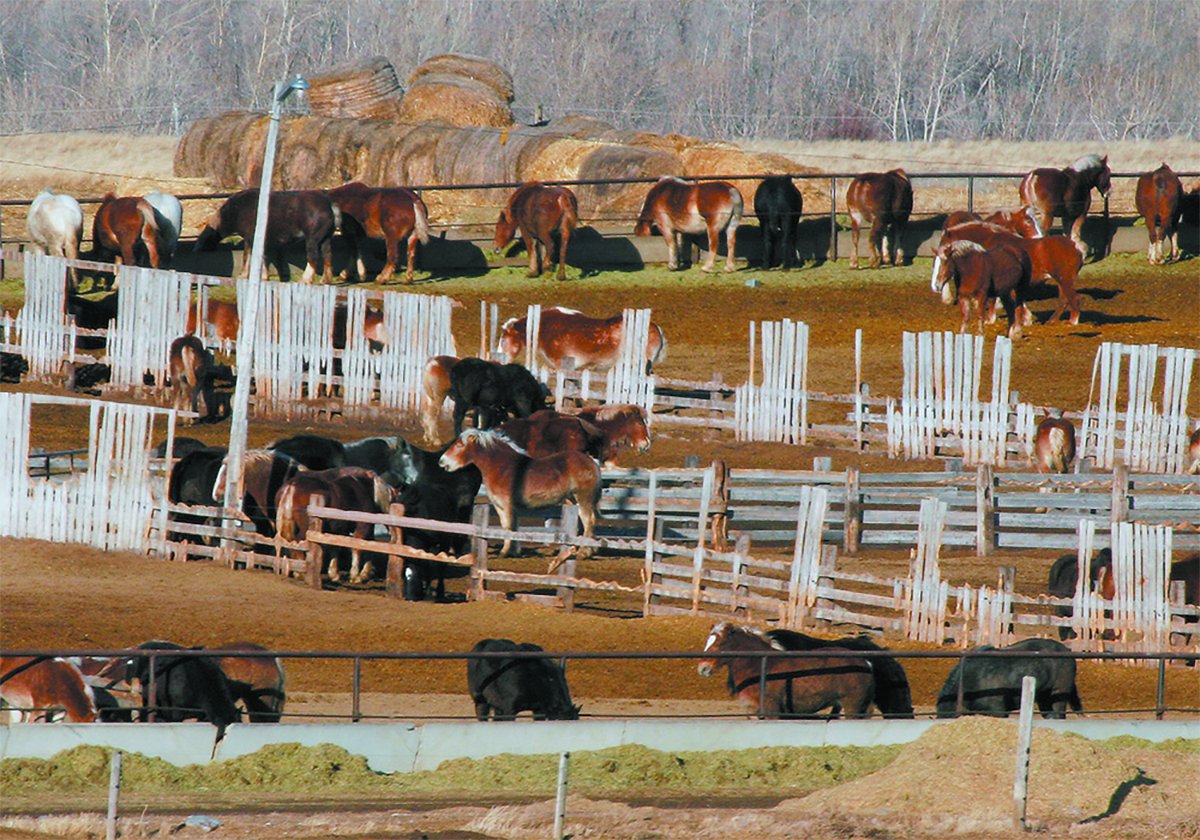Canadian beef packers have been accused of unethical behaviour and profiteering since May 20.
Delegates to the Alberta Beef Producers annual meeting in Calgary displayed their frustration with low prices for fed cattle during the weeks after a single case of bovine spongiform encephalopathy closed the border.
“Most of us would agree since May 20 there has been no competition among the packing plants in this province,” said delegate Rob Summerville of Endiang, Alta.
Delegates presented resolutions demanding more accountability, restrictions on packer ownership of cattle and mandatory price reporting on the numbers sold, the quality and class of cattle.
Read Also

Canada’s slaughter horse industry lacks transparency
The lack of clear reporting and public access to data keeps the industry largely hidden, leaving questions about humane treatment and traceability unanswered.
The number of packer-owned cattle is not generally known. There is limited information available on the animals sold through contracts, formulas or grids.
A resolution requesting a restriction on packer ownership of cattle was defeated because some delegates argued this interfered in private business.
“Pricing practices is the business of those companies,” said John Kolk of Picture Butte, Alta.
Gary Sargent, manager of the producer organization, said a beef industry development project worth $1.8 million is studying price discovery. Its findings and recommendations should be available soon.
Delegate Craig Horner of Hanna, Alta., said rumours persist of excessive profits among packers.
“We all know lots of money has been made there and we need to document it somehow,” said Horner.
This summer, fed prices dipped as low as 35 cents a pound but retail prices for most products, except ground meat, remained the same as pre-BSE levels. Part of the problem is packer-owned cattle, said delegate John Prentice of Calmar, Alta.
Four years ago, 68 percent of all cattle traded on the cash market and now 40 percent are traded for cash.
“Price discovery is being impaired,” Prentice said.
Feedlot owner and delegate Len Vogelaar of Pincher Creek, Alta., said he was once opposed to releasing such information, but he is concerned about possible market manipulation by packers when feedlots are at their most vulnerable.
“The ordeal the industry has gone through and the obnoxious behaviour we have been subjected to by packers has made me change my mind,” he said.
Vogelaar argues that packer-owned cattle were the first to go to slaughter, therefore packers captured most of the government BSE support money.
While the delegates were clearly frustrated, beef producers cannot directly interfere in packer operations, said Frank Falwell of the marketing council that oversees operations of commissions and marketing boards in Alberta. There are provincial and federal regulations governing the industry, but it is not within the authority of the association to make direct changes.
The United States has had a mandatory price reporting law since 1999, but there was considerable controversy over the information that was finally released. That law is up for renewal in October 2004 and is being studied to determine whether it provided useful information to producers.

















